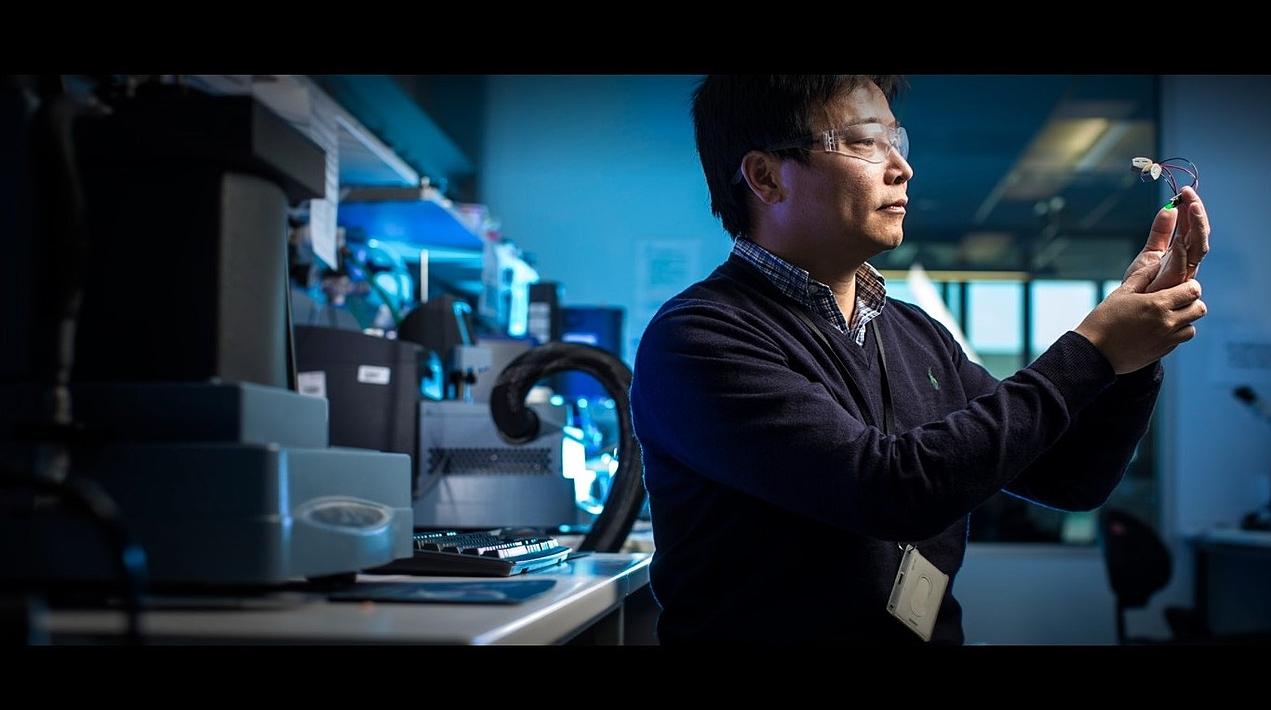
Projects led by University of Wollongong (UOW) researchers have been awarded $3.4 million in the latest round of Australian Research Council (ARC) Discovery Projects. The grants formed part of a total of $258.6 million for 587 new projects over the next five years. The latest round has funded eight UOW-led projects, five of which are tech-centred.
The Chief Executive Officer of the Australian Research Council (ARC) noted that the funding would support excellent basic and applied research projects and enhance the scale and focus of research in Australian Government priority areas. The intended outcomes of the Discovery Projects scheme are to expand the knowledge base and research capacity in Australia and provide economic, commercial, environmental, social and cultural benefits for Australia.
The tech-driven UOW-led Discovery Projects
Investigating supported molecular catalysts for fuel cell applications.
A team led by Professor Jun Chen, from the Intelligent Polymer Research Institute, will develop an innovative and sustainable system, which could promote the N2 fixation along with the CO2 conversion process. It will thereby contribute to the mitigation of greenhouse emissions and create an eco-friendly protocol/technology for distributed production of C-N products under ambient conditions.
Affordable battery storage for renewable energy
This project, led by Professor Shulei Chou, Professorial Research Fellow at the Australian Institute for Innovative Materials, seeks to develop sodium-ion sulfur batteries as a novel technique for large-scale stationary energy storage, especially for intermittent solar and wind energy storage in Australia. Expected outcomes include a breakthrough in affordable battery storage technology, leading to significant benefits by integrating this battery system with renewable energy.
Stability for applications in quantum devices
Associate Professor Adam Rennie, from the School of Mathematics and Applied Sciences, and his team aim to use mathematical scattering theory to find and study new topological features to be used in applications for quantum devices. The results will give topological stability from the scattering spectrum, a feature not previously seen. The benefits stem from new results in mathematical scattering theory with a primary novelty being the analysis of “zero energy resonances” in mathematical models of graphene.
Improving the accuracy and security of crowd-sourced data
The goal to enable quality data classification via secure crowdsourcing is the aim of a team led by Professor Willy Susilo, from the School of Computing and Information Technology. The quality of a data-intensive process, such as a Machine Learning algorithm, depends on the input data quality. By using a crowdsourcing classification, the project expects to overcome the painstaking and costly process of humans annotating extensive input data from diverse real information. The project will benefit large data-intensive applications, such as cybersecurity protection.
New ways of improving machine learning
A team led by Professor Lei Wang, from the School of Computing and Information Technology, will develop novel machine learning techniques to make machines better at using experience to solve new tasks with fewer data. It expects to reduce the undesirable dependence of current machine learning on labelled data and significantly expand its application scope. This should be able to produce solid benefits to the science, society, and economy of Australia via the application of these advanced intelligent systems.
















